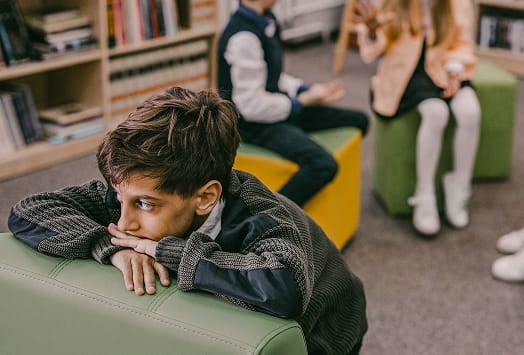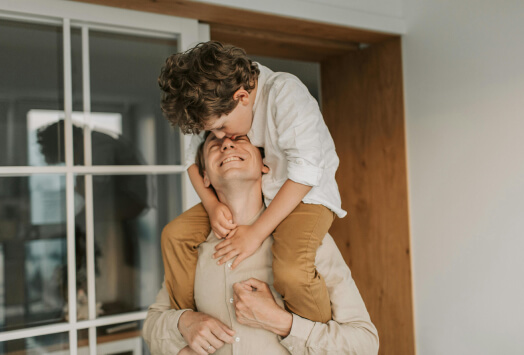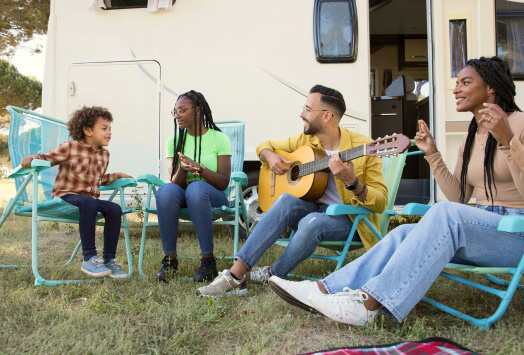Feel like your stay-at-home game is losing some quaran-steam? Bring some fun into your day with DIY science experiments!
Science is more than pop, sizzle, boom!
Science experiments give children a fun experiential way to learn. Any time we as parents get to double-dip as a teacher and a parent, it's a win! At-home experiments provide a great place to practice:
1. Following directions
Hear us out — following directions is tough for children and adults. Most children's science experiments have multiple steps, measurements, and instructions that need to be followed in a specific order — being patient is a must.
To encourage children to follow directions, make sure you’re invested in any experiment you do at home. Children are more likely to follow directions if they know the end result will be a cool reaction or fun creation!
2. Delayed gratification
Some experiments for kids don't happen right away. Sometimes, it takes weeks or even months of tracking and taking data to find out what happens. How's that for patience practice?
3. Failure practice
As parents, we want to see our little ones succeed. While it feels counterintuitive, encouraging our children when they fail is a great practice. How we react when fizz doesn't fizzle or boom never happens sends an important message to them as well.
4. Team work
Whether it's with an adult, sibling, or online lab partner, DIY experiments offer an excellent way to work together. It's never too early to start training for all those group projects and corporate collaborations, right?
5. Grit training
When our children experience failure, it's important to teach them to try again! Picking up the pieces and dusting off failure lets children know they can and should try again. Success is always sweeter after experiencing some failure.
Raid your kitchen
You don't need a professional lab to have successful DIY science at home. Materials for a solid (liquid, or gas) experiment are probably laying around your house right now.
1. Plop, plop. fizz, fizz
Fill a medium-sized cup or soda bottle half full with vinegar. Place in a large bowl or sink, it's going to get messy! Plop 1-2 Tbsp of baking soda and watch the volcano fizz over. You can also use antacid tablets in place of baking soda but don't use too much or your fizz fizz will be out of control.
Bonus points for making a volcano out of clay or playdoh. Take out a map to find which parts of the world have volcanos. Nothing beats at-home experiments that cover more than one subject!
2. It's freezin' in here! wait, maybe not
Why do some things freeze faster than others, and some things not freeze at all? Find out first hand by taking four plastic cups and label each one with a number or letter (eg; 1, 2, 3, 4).
Fill each cup half full with a different substance. Fill cup 1 with water, cup 2 with vinegar, cup 3 with rubbing alcohol, and cup 4 with vegetable oil. Place all four cups in the freezer and check them every 45-60 minutes to record observations.
If you have a wide age range, have little ones draw pictures and older ones incorporate more scientific data procedures. Someone can even make a graph. Math and science, together once again!
3. Rocks + water = displacement
Take a large pitcher or water carafe and fill 3/4 full with water. Mark the top of the waterline with tape. Grab some rocks and start plopping them in.
What's happening to the water level after 2 rocks, 4 rocks, 8 rocks? Mark each level with tape and measure. Document the findings and practice the term water displacement.
Tie in some literature with Aesop's The Crow and The Pitcher fable. Science for kids that incorporates storytime? Yes, please!
Check out your local library to find more books on kitchen science experiments for kids.
When you don't have the time
If you have down time at home, consider taking time to research, organize, and facilitate at-home science experiments with your children.
The great news is, you don't have to! Having an online instructor guide your child is an excellent way for them to learn.
Online science courses offer children a diverse learning experience while staying safe at home.
1. Learn to hypothesize
Courses like Hypothesis Haven give children the tools to think through a step-by-step process. Children learn tools to ask and answer their own questions: like What's going to happen? Was I correct or incorrect? Why?"
Once they learn the importance and process of making a hypothesis, children will gain more skills through those DIY at-home science experiments.
2. Essential elements
Chemistry doesn't have to wait until high school. Children as young as 10 years old can enjoy online chemistry classes. Once your child has learned the basics and the periodic table, they can apply what they've learned by doing some DIY science at home.
3. Learn science together
Little ones love sharing their experiences with the adults in their lives. Why not tag along with your child's online class? Online classes for younger children ages 4-8 provide a list of materials for some DIY science at home.
Attending the online class together offers you a shared experience without having to be in charge. Sometimes, it's nice to pass the adulting duties off for a little while!
4. Growing, growing, yum!
As children growing, teach them how things grow. Online courses about earth science can help your children plant and grow their own veggies. This is a great way for students to learn the importance of plant care.
Knowing where food comes from, and how long it takes to grow gives children a better appreciation for their food as well. Experiencing stages of growth while learning about them is an added bonus to earth science experiments!
Experiments everywhere
By looking around the house and online, parents can easily find ways to incorporate DIY science experiments at home.
If you're looking for more online courses in science or other topics, please reach out to us. We'd love to help you and your children create and grow through online learning!
















